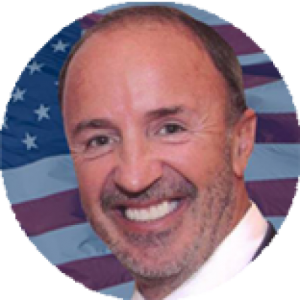Canadian Prime Minister Justin Trudeau on Friday said he is convinced he “made the right choice” in invoking historic emergency powers earlier this year to shut down the Freedom Convoy protests against Canada’s COVID-19 mandates.
Trudeau defended his actions in testimony before a commission tasked with investigating his use of the Emergencies Act to end the trucker protest that gridlocked Canada’s capital of Ottawa for weeks in January and February. The prime minister said he was left no other choice than to call on emergency powers on Feb. 14 after he deemed a plan put forward by police insufficient to end the weeks-long demonstration.
“It wasn’t that they just wanted to be heard. They wanted to be obeyed,” Trudeau said of the protesters, according to Reuters. “I am absolutely, absolutely serene and confident that I made the right choice in agreeing with the invocation.”
Trudeau invoked the Emergencies Act for the first time in Canada’s history during February’s Freedom Convoy protest in the capital city of Ottawa. In doing so, he granted the federal government temporary powers to quell truckers and others protesting COVID-19 vaccine mandates and other pandemic-related restrictions and freeze the bank accounts of those suspected of supporting the convoy.
The emergency powers were lifted on Feb. 23.
CANADIAN RELIGIOUS LEADERS SPEAK OUT AS COUNTRY SET TO ALLOW EUTHANASIA FOR MENTAL ILLNESS
Trudeau’s actions were highly controversial, and civil liberties advocates questioned whether the circumstances of the protest necessitated his extreme response. Lawyers for the convoy and others said that Trudeau had ignored a plan prepared by Ottawa police and argued that the emergency powers were unnecessary to end the protest, according to Reuters.
As required by law, an independent inquiry was formed to investigate the prime minister’s actions and submit a report to the Canadian government detailing its findings. The report is due by Feb. 20, 2023. Trudeau was the final witness to be called to testify.
During his testimony, the prime minister said the protests presented a serious threat of violence, and he accused local police of putting forward a plan that “was not even in the most generous of characterizations a plan” to deal with the blocked streets, Reuters reported.
Additional testimony and documents obtained by the inquiry revealed that U.S. officials had pressured the Canadian government to shut down the protests and remove blockades at border crossings between the U.S. and Canada.
XI CONFRONTS TRUDEAU AT G-20, SAYS PRIVATE CONVERSATION WAS ‘LEAKED’ TO MEDIA: ‘NOT APPROPRIATE’
“They are very, very, very worried,” Canadian Finance Minister Chrystia Freeland wrote in an email to her staff after a Feb. 10 phone call with White House National Economic Council Director Brian Deese, Politico reported.
“If this is not sorted out in the next 12 hours, all of their northeastern car plants will shut down,” Freeland added in her email.
Transportation Secretary Pete Buttigieg contacted Canadian Transport Minister Omar Alghabra on the same day Deese spoke with Freeland, according to the report, and Buttigieg pressed for “a plan to resolve” the border blockades.
Alghabra told the commission that Buttigieg had initiated the “unusual” call.
White House aides had reportedly contacted Trudeau’s staff as well, ahead of a Feb. 11 phone call that took place between the prime minister and President Biden.
On that call, Trudeau reportedly informed the president that his government had a plan to end the protests and blockades.
Fox News’ Danielle Wallace contributed to this report.






